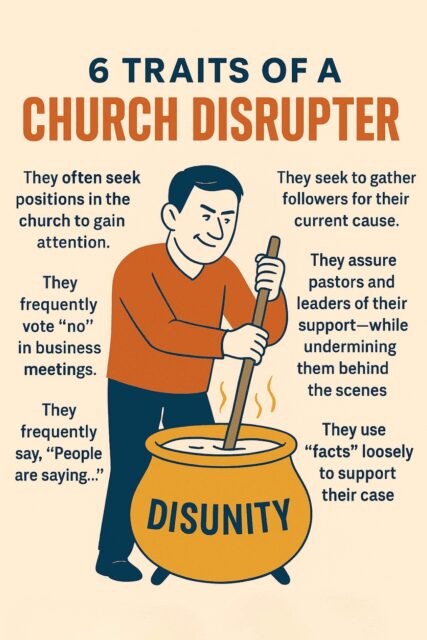In almost every church, there is someone who stirs up disunity. This person could be anyone—a man or a woman, a long-time member or a newcomer. Let’s call them the church disrupter. Unlike church bullies, disrupters rarely attack leaders directly. Instead, they quietly stir up dissension, often believing they’re acting under God’s guidance. Disrupters can be charismatic and pleasant, which sometimes allows them to gain a following—for a time. The role of the disrupter is clear: they disrupt unity in the church, its outward focus, and its leadership’s plans. Here are six common traits of a church disrupter to watch for:
6 Traits of a Church Disrupter
-
They often seek positions in the church to gain attention.
Be cautious if someone persistently seeks leadership roles, such as leading the student ministry, the praise team, or chairing key committees. These positions provide them with influence to further their agenda.
-
They frequently vote “no” in business meetings.
Voting “no” becomes a tool for drawing attention or expressing dissent, even when unnecessary.
-
They frequently say, “People are saying…”
This phrase is used to create the illusion of widespread support for their cause, even when it doesn’t exist. Similarly, they might suggest, “If we had a secret ballot vote, there would be a lot more dissenters.”
-
They seek to gather followers for their current cause.
Building a base of supporters gives the disrupter leverage and makes them feel validated.
-
They assure pastors and leaders of their support—while undermining them behind the scenes.
Disrupters can be outwardly complimentary but work against leadership in private, causing division.
-
They use “facts” loosely to support their case.
For the disrupter, accuracy is often secondary to advancing their narrative.


